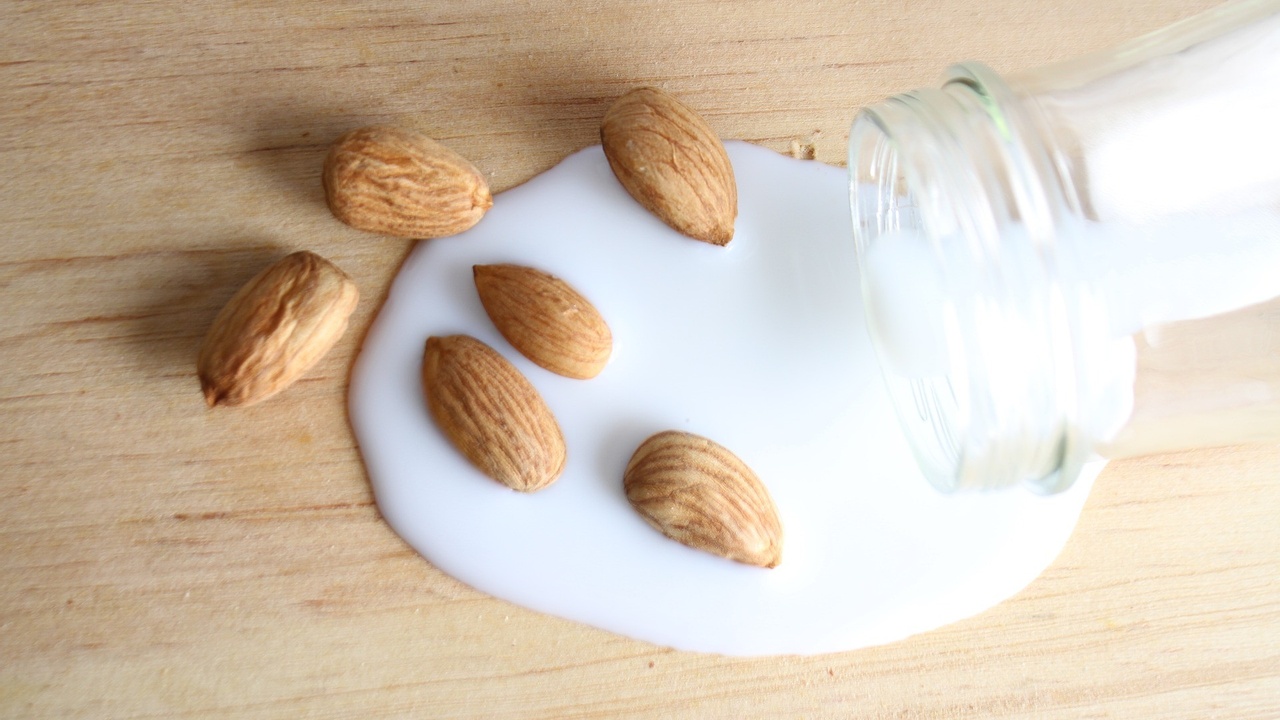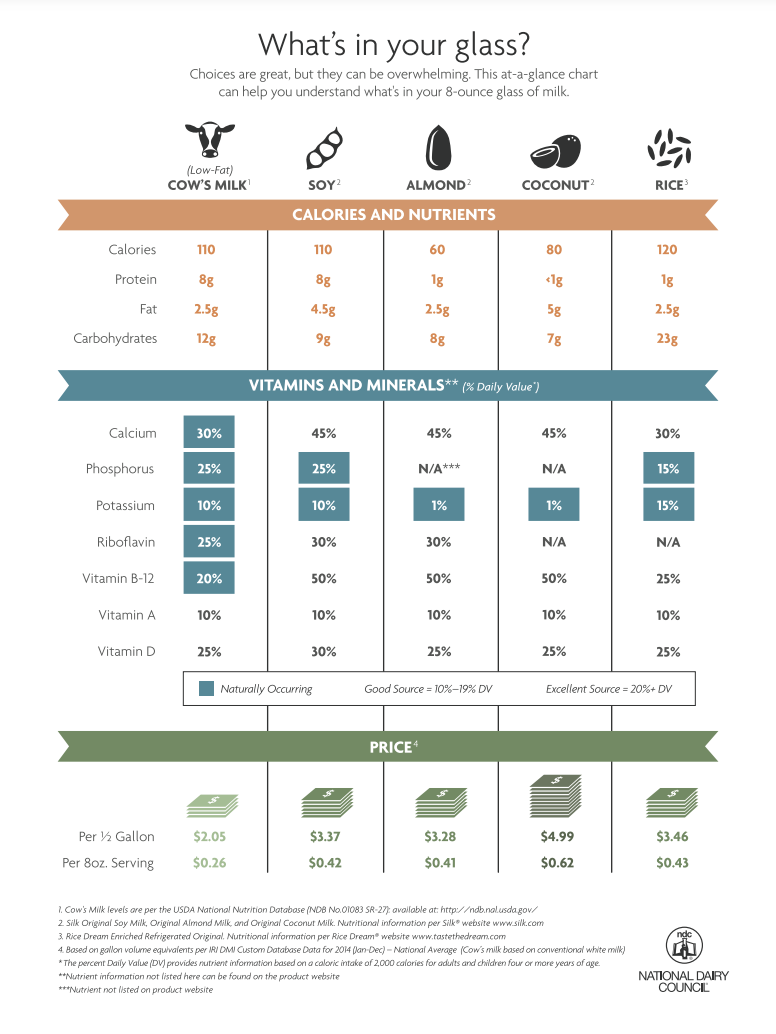Are Nut or Plant Milks Healthier than Dairy Milk?

You are doing your best to stay healthy and for many of you that means avoiding cow’s milk. Maybe you have replaced it with a nut or plant milk. Are you really doing yourself any favors?
Let’s take a look first at the objections that people have about drinking dairy milk.
First, dairy cattle are treated with bovine growth hormone to increase milk production. Some folks are concerned that this hormone will sneak into the cow’s milk that we humans consume. Bovine growth hormone is broken down by enzymes in the GI tract and the peptides that it is broken down to are not biologically active in humans.
Second, there is a concern that dairy cattle are treated with hormones that can seep into the milk that we humans consume. If dairy cattle are being treated with antibiotics, their milk is discarded and not saved for consumption by humans. In addition, milk is routinely tested for antibiotics and if any are found, that milk is discarded (even by the tankerful).
Third, many people don’t tolerate dairy. This falls into two categories of problems. Either people are lactose intolerant or they have a true dairy allergy.
The sugar in milk is lactose and as we grow older we don’t make as much of the enzyme that breaks down lactose (lactase). Lactose intolerance is incredibly common in adults. Up to 70% of the adult population worldwide may be lactose intolerant, and it is more frequent in blacks than whites. Even people with lactose intolerance can usually tolerate up to one cup of milk. Also, hard cheeses, yogurt, and butter are tolerated since they don’t contain much lactose.
The most common food allergy in children is to the proteins in milk. Often children grow out of this and can tolerate milk later in life. But if this is a true allergy, you will need to avoid all milk and dairy products. The proteins and sheep and goat milk are very similar so these will need to be avoided as well. Plant and nut milks might be an option for this crowd.
So let’s talk about the pros and cons of dairy vs. plant or nut milks. Cow’s milk contains calcium, protein, and is fortified with vitamins D and A. In addition it contains potassium and B vitamins. It supports bone, heart, and muscle health. Some plant and nut milks are fortified with some of these nutrients but not all are. Generally cow milk contains much more protein as well.
Plant and nut milks tend to be sweetened and flavored to make them palatable. In addition they may have additives to make them creamier. That means processing and the addition of chemicals. The chart below compares some of the milks you might be interested in with dairy. Rice milk in particular contains a lot of simple carbohydrates that could cause a spike in insulin and blood sugar. Dairy milk also tends to be cheaper than the alternatives.

You may have animal welfare or environmental concerns that steer you towards plant or nut milks. Almond milk has low greenhouse gas emissions and uses less land than dairy milk but it requires a lot of water. Almond milk requires more water than any of the other dairy alternatives. It takes 130 pints of water to produce a single glass of almond milk. The production of coconut milk involves the clearing of rainforests. Between 2007 to 2014 rainforests in Indonesia were clearcut to make way for coconut palm trees. Rice soaks up water, and it also produces more greenhouse gas emissions than any other plant milk. Oat milk and soy are both more environmentally friendly than other milk alternatives.
Avoiding cow milk makes sense if you have a true allergy or lactose intolerance. Plant and nut milks do not have all the nutrients that dairy does. Not all plant and nut milks are environmentally friendly.




